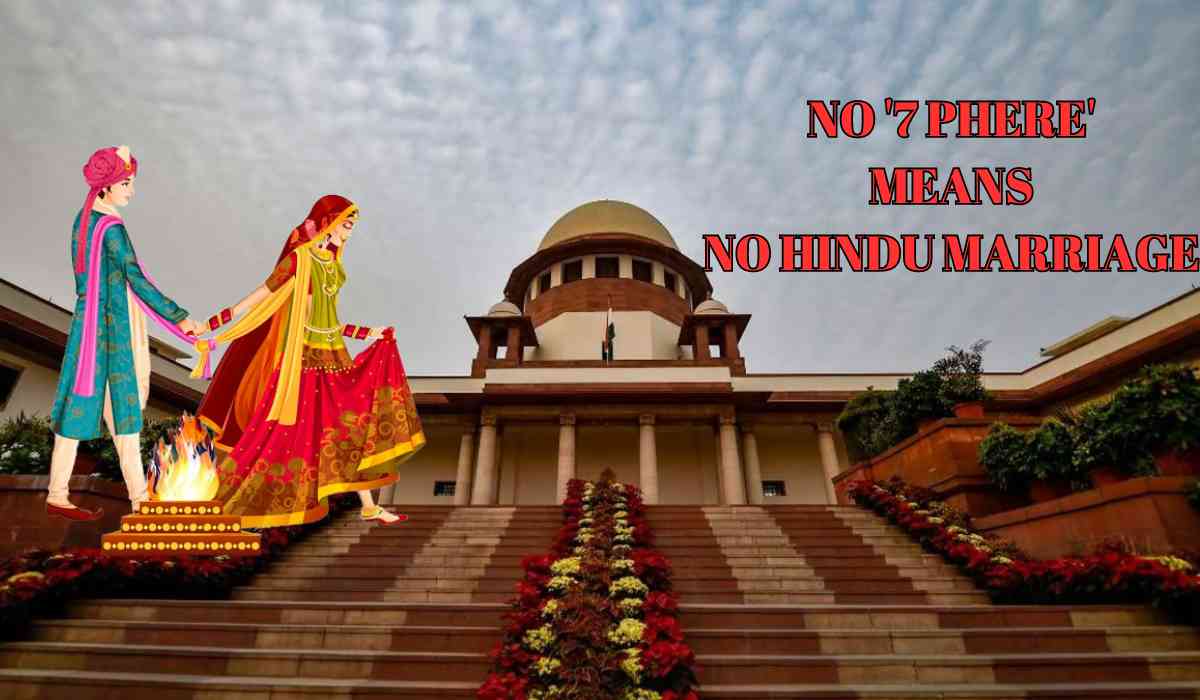In a recent ruling concerning two experienced commercial pilots pursuing a divorce decree without undergoing a legitimate Hindu marriage ceremony, the court urged young individuals to reflect profoundly on the significance of marriage even prior to committing to it and to grasp the sanctity this institution holds within Indian society.
A panel consisting of Justice BV Nagarathna and Augustine George Masih further noted that a Hindu marriage is a sacred ritual, not merely a casual affair akin to "song and dance" or "wining and dining."
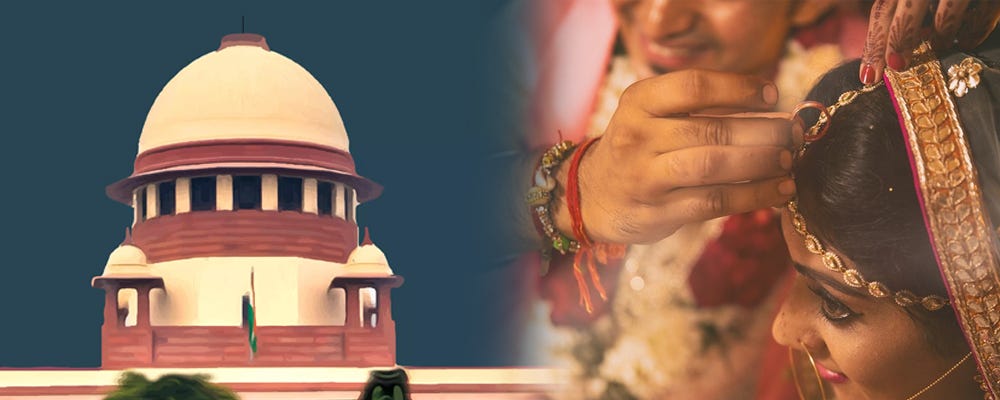
What was the case about?
A couple, both trained commercial pilots, initially sought to transfer their divorce proceedings from Bihar to Jharkhand. They claimed to have been engaged to marry in March 2021 and later solemnized their marriage in July 2021, obtaining what they believed to be a valid "marriage certificate" from Vadik Jankalyan Samiti (Registered). This certificate led to the issuance of a "Certificate of Registration of Marriage" under the Uttar Pradesh Marriage Registration Rules, 2017.
However, they subsequently filed a joint application with the Supreme Court, invoking Article 142 of the Indian Constitution, to declare their marriage certificates void. They asserted that their marriage lacked validity under Hindu marriage laws as no customary ceremonies were performed.
The Supreme Court, in the interest of justice, made observations while granting the couple's request. It noted that despite the issuance of marriage certificates, no valid marriage had occurred due to the absence of customary rituals. Consequently, the court declared the marriage void.

The court declared the order on April 19
In its April 19 judgement, the bench said that a Hindu marriage will not be recognised if it does not follow the required rites or ceremonies, such as the 'saptapadi' (when the groom and bride walk seven steps together before the sacred fire).
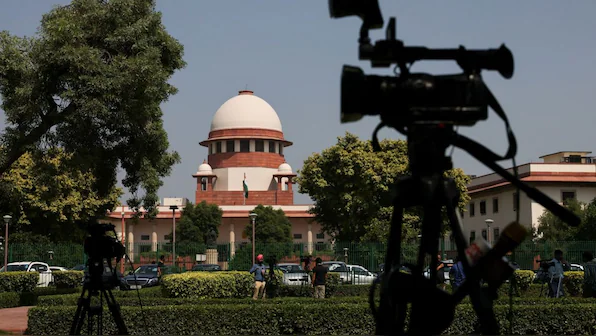
What are the marriage laws in India?
In 2021, the Supreme Court affirmed India's recognition of a plural legal system, allowing different religious communities to abide by their respective personal laws. Personal laws in India vary based on an individual's religion.
For example, Hindus, Christians, and Parsis are governed by the Hindu Marriage Act, the Indian Christian Marriage Act, and the Parsi Marriage Act, respectively. Muslims adhere to the Muslim Personal Law (Shariat) Application Act of 1937.
Additionally, the Hindu Marriage Act extends to Lingayats, Brahmos, Aryasamajists, Buddhists, Jains, and Sikhs. Various aspects of personal life like divorce, inheritance, and adoption are regulated by laws such as the Hindu Succession Act, the Indian Succession Act, and the Hindu Adoption and Maintenance Act.
However, there were no regulations for inter-faith marriages, nor were civil marriages (conducted by a government official) legally recognized. To address this, the Special Marriage Act (SMA) was enacted in 1954. The SMA governs civil marriages between Indian nationals, both within India and abroad, regardless of religious affiliation.
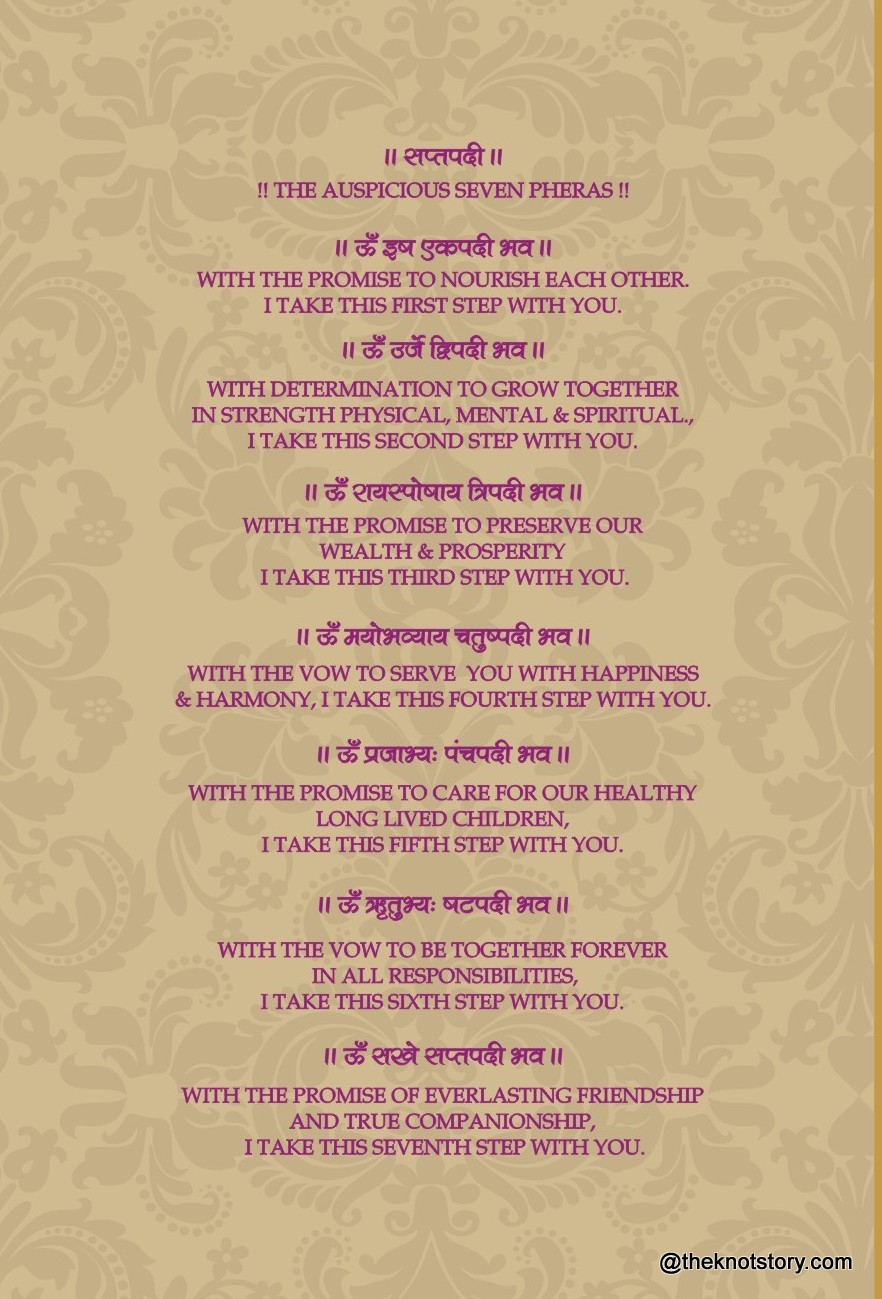
- Hindu Marriage Act:
According to the Hindu Marriage Act, one crucial condition for a Hindu marriage is that neither party should have a living spouse at the time of marriage. Section 7 outlines the necessary ceremonies for a Hindu marriage, adherence to which is essential for the marriage's legal validity. Failure to comply renders the marriage invalid in the eyes of the law. The Act specifies that a Hindu marriage must adhere to the customary rites and ceremonies of both parties involved. Section 495 deals with situations where a previous marriage is concealed from the person entering into a subsequent marriage. In such cases, the individual may face imprisonment for up to ten years and a possible fine.
- Muslim Personal Law Application Act 1937:
Under the Muslim Personal Law Application Act 1937, Muslims are allowed to marry up to four times. However, a 2018 Supreme Court ruling clarified that while Muslim personal law permits multiple marriages, having more than one spouse is not a religious obligation. The court emphasized that polygamy is not mandated by religion nor is it a matter of freedom of conscience. Previous writ petitions have challenged the validity of Muslim Personal Law allowing polygamy, citing violations of Articles 14 and 15 of the Constitution.
- Parsi Marriage and Divorce Act, 1936:
The Parsi Marriage and Divorce Act of 1936 stipulates that any Parsi individual who enters into marriage during the lifetime of their spouse, without lawful divorce or annulment, shall be subject to penalties as outlined in sections 494 and 495 of the Indian Penal Code. This includes marrying again without proper legal dissolution of the previous marriage, and offenders may face legal consequences.
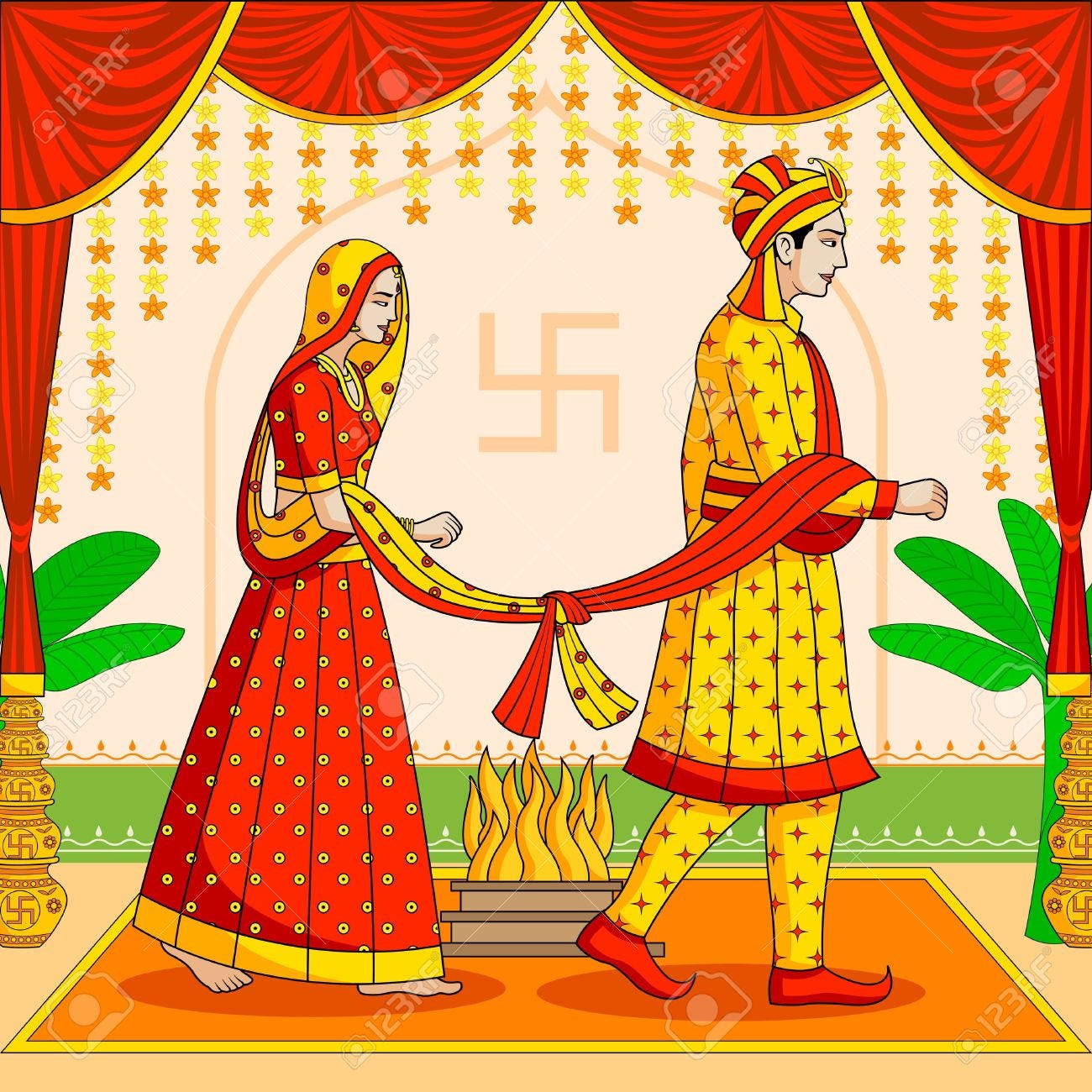
Marriage will not be construed without saptapadi
“Where a Hindu marriage is not performed in accordance with the applicable rites or ceremonies such as saptapadi (seven steps around the sacred fire) when included, the marriage will not be construed as a Hindu marriage. In other words, for a valid marriage under the Act, the requisite ceremonies have to be performed and there must be proof of performance of the said ceremony when an issue/controversy arise. Unless the parties have undergone such ceremony, there would be no Hindu marriage according to Section 7 of the Act and a mere issuance of a certificate by an entity in the absence of the requisite ceremonies having been performed, would neither confirm any marital status to the parties nor establish a marriage under Hindu law,” the SC said.
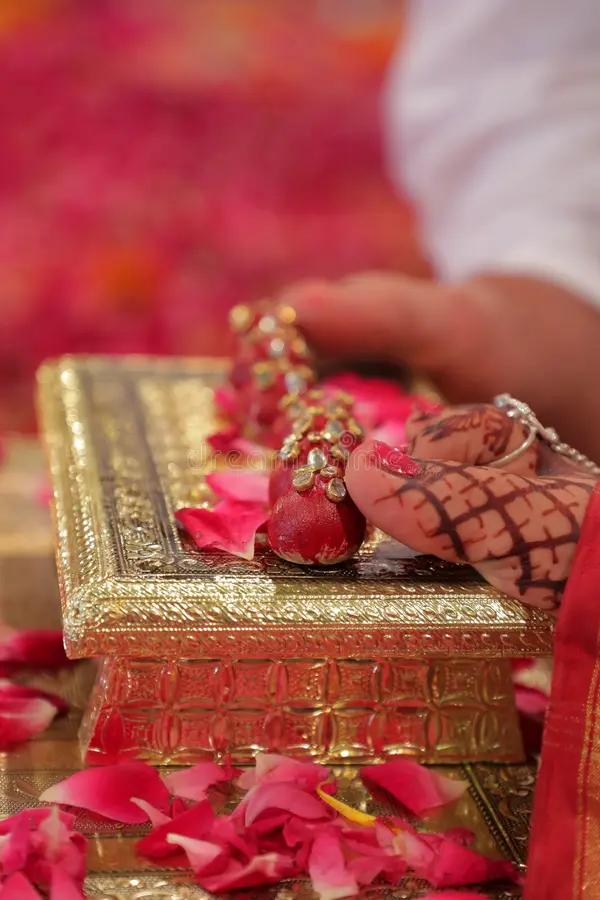
Bench describes marriage as sacred
“A marriage is not an event for ‘song and dance’ and ‘wining and dining’ or an occasion to demand and exchange dowry and gifts by undue pressure leading to possible initiation of criminal proceedings thereafter. A marriage is not a commercial transaction. It is a solemn foundational event celebrated so as to establish a relationship between a man and a woman who acquire the status of a husband and wife for an evolving family in future which is a basic unit of Indian society,” the supreme court said.
“A Hindu marriage is a samskara and a sacrament which has to be accorded its status as an institution of great value in Indian society. Therefore, we urge young men and women to think deeply about the institution of marriage even before they enter upon it and as to how sacred the said institution is, in Indian society.”, the court said.
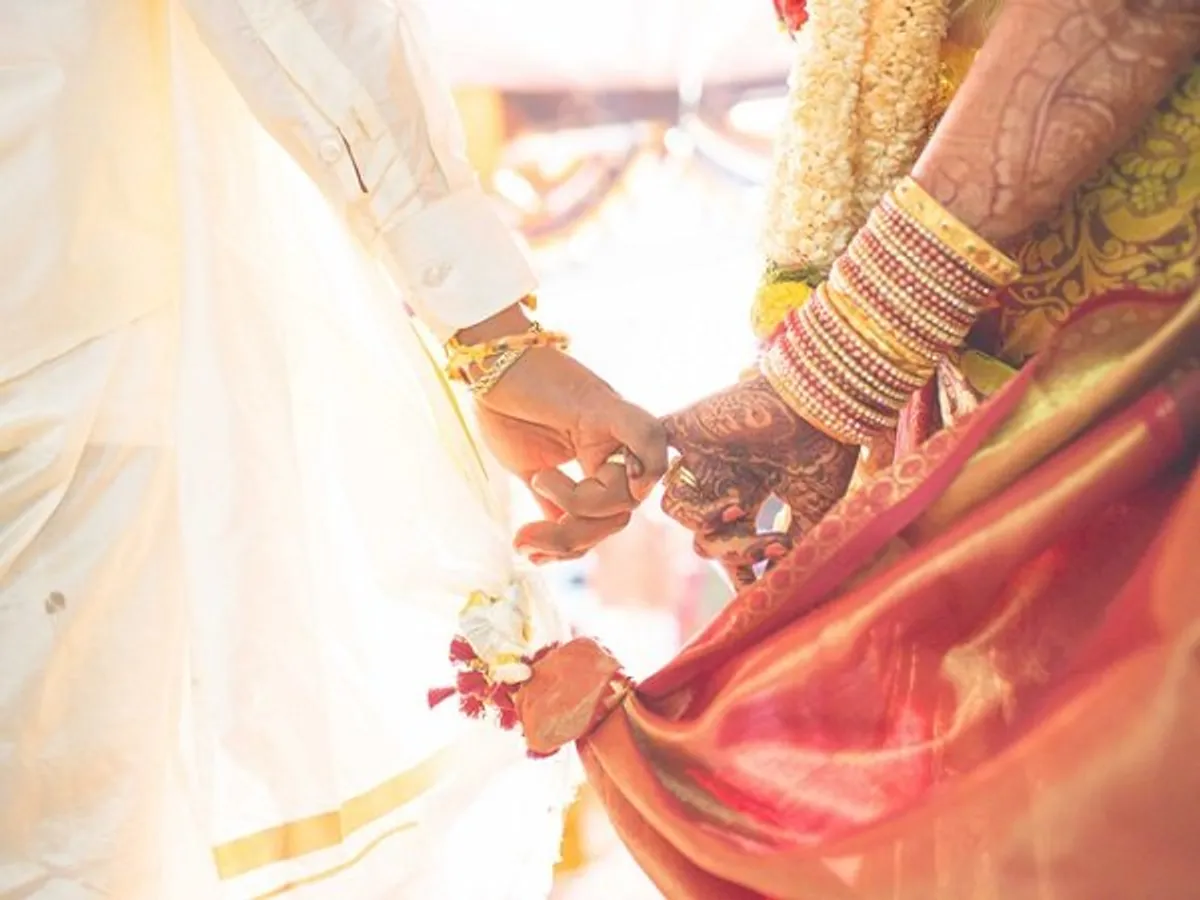
The bench observed the Hindu Wedding Rituals
“A Hindu marriage facilitates procreation, consolidates the unit of family and solidifies the spirit of fraternity within various communities. After all, a marriage is sacred for it provides a lifelong, dignity-affirming, equal, consensual and healthy union of two individuals. It is considered to be an event that confers salvation upon the individual especially when the rites and ceremonies are conducted. The customary ceremonies, with all its attendant geographical and cultural variations is said to purify and transform the spiritual being of an individual,” the court said.
Section 7 of the Hindu Marriage Act says, “A Hindu marriage may be solemnised in accordance with the customary rites and ceremonies of either party thereto.” The court observed that the word ‘solemnised’ has been used to mean that unless the ceremonies are performed, the marriage is not considered to be solemnised or valid.
Section 7(2) states that when in case the ceremony includes ‘saptapadi’ (where bride and groom jointly take seven steps) the marriage is said to be solemnised on the completion of the seventh step. The bench observed that a Hindu marriage possesses a sacred and sacramental nature. Referring to the significance of the ‘saptapadi’ ceremony in Hindu marriage, as per Rig Veda, upon completing the seventh step, the groom traditionally says to the bride, “With seven steps, we have become friends (sakha).
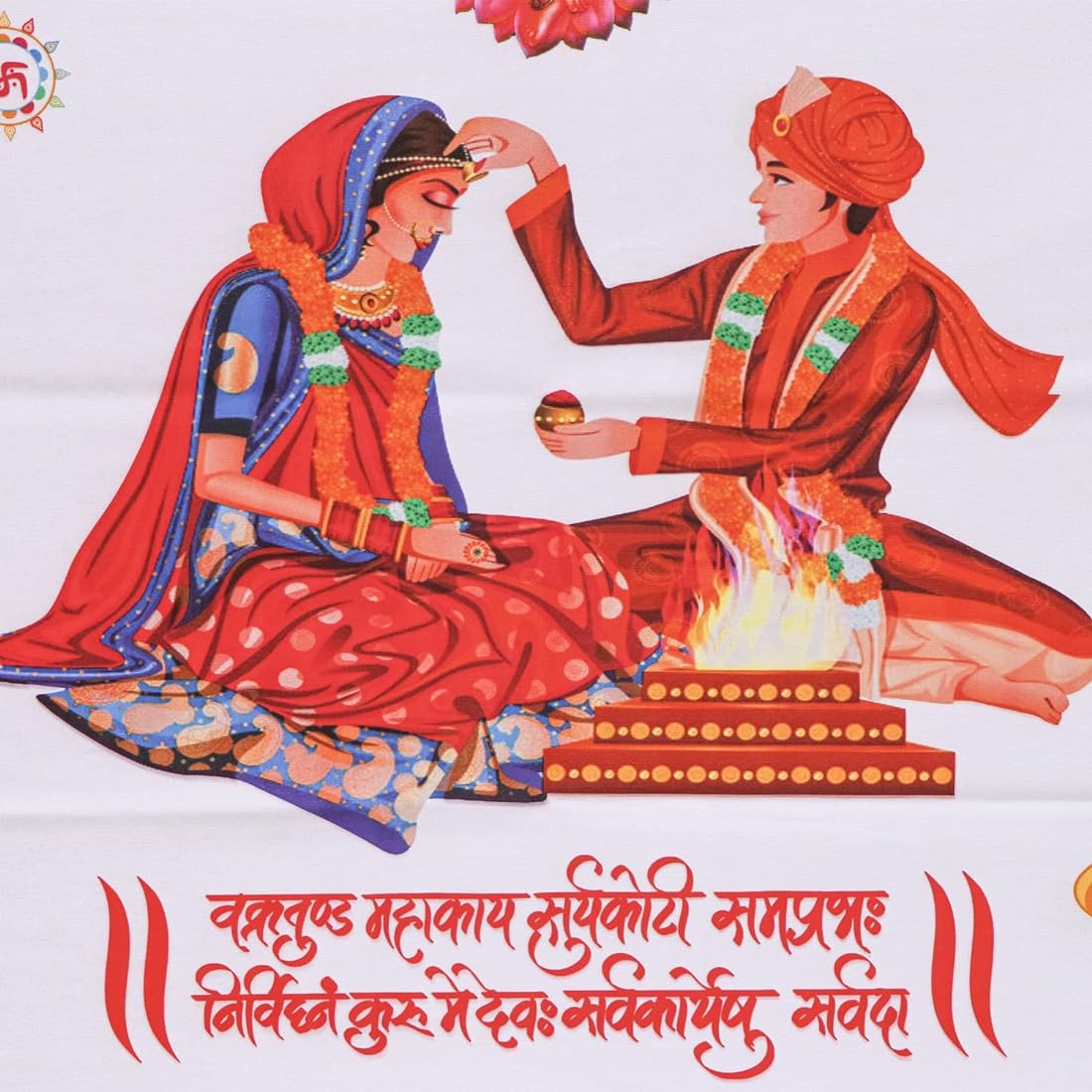
Conditions under which marriage is invalid
“If there has been no marriage in accordance with Section 7, the registration would not confer legitimacy to the marriage. We find that the registration of Hindu marriages under the said provision is only to facilitate the proof of a Hindu marriage but for that, there has to be a Hindu marriage in accordance with Section 7 of the Act inasmuch as there must be a marriage ceremony which has taken place between the parties in accordance with the said provision. Although the parties may have complied with the requisite conditions for a valid Hindu marriage as per Section 5 of the Act in the absence of there being a “Hindu marriage” in accordance with Section 7 of the Act, i.e., solemnisation of such a marriage, there would be no Hindu marriage in the eye of law.”
Discussing the meaning of these Vedic ceremonies, the judgment said “With the passage of centuries and the enactment of the Act, monogamy is the only legally approved form of relationship between a husband and a wife. The Act has categorically discarded polyandry and polygamy and all other such types of relationship.” The bench thus noted that a marriage between two Hindus is recognised only if it is compliant with the Act.
The court also deprecated the practice among youngsters of the day seeking to get a marriage certificate without having gone through the ceremony. The court said, “In recent years, we have come across several instances where for “practical purposes”, a man and a woman with the intention of solemnisation of their marriage at a future date seek to register their marriage under Section 8 of the Act.” Any certificate in the absence of the ceremonies will not be valid.
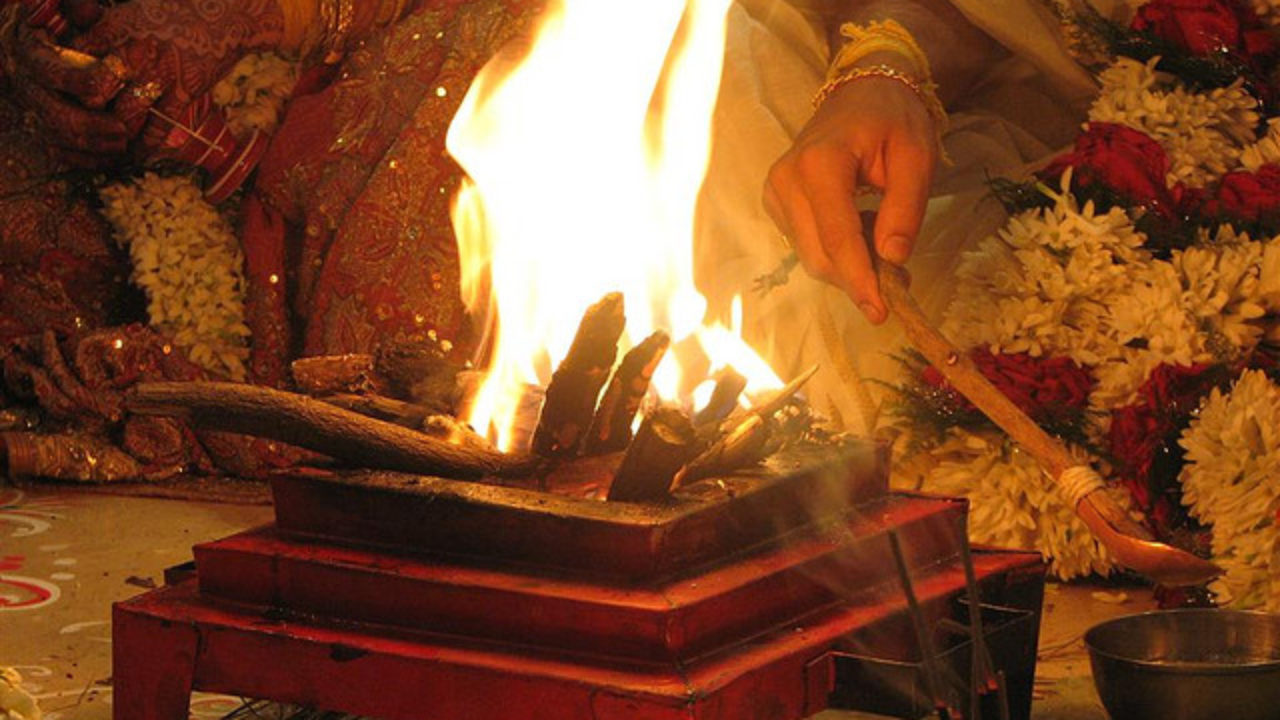
Registration only proof of marriage
Section 8 of the law deals with the registration of Hindu marriages and issuance of certificates, with states empowered to make rules relating to the issuance of certificates. However, a couple wishing to get their marriage registered must show proof of having been married.
The proofs such as photographs and certificate need to establish that both parties are Hindu and that the marriage was done in accordance with the law. In this case, the couple obtained a certificate from Vadik Jankalyan Samiti, stating that the marriage had been performed. Thus the court said, “Where a Hindu marriage is not performed in accordance with the applicable rites or ceremonies such as saptapadi when included, the marriage will not be construed as a Hindu marriage.”
The court further held that the mere issuance of a certificate in the absence of such ceremonies would neither confirm any marital status to the parties nor establish a marriage under Hindu law.
According to the judgment, even if a certificate is issued stating that the couple had undergone marriage it would not give legitimacy to the marriage unless the customary ceremonies are performed. “The registration of a marriage under Section 8 of the Act is only to confirm that the parties have undergone a valid marriage ceremony in accordance with Section 7 of the Act,” the judgment said.
The case highlighted the significance of adherence to the customary rites and ceremonies outlined in the Hindu Marriage Act for a marriage to be legally recognized, and it stressed the sacred nature of marriage as per Hindu traditions.
Inputs from Live Law
Image Source: Multiple agencies
© Copyright 2024. All Rights Reserved Powered by Vygr Media.

